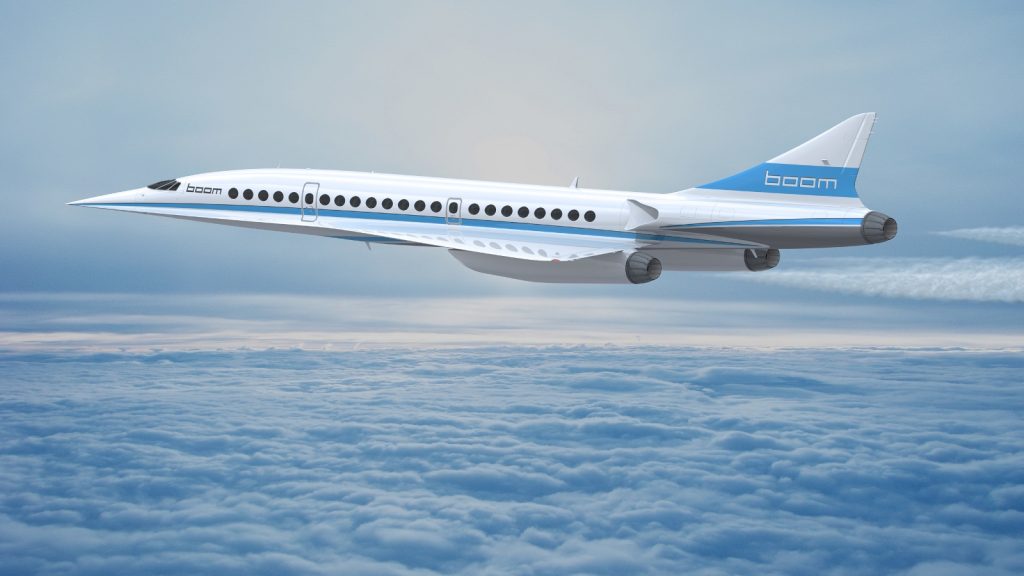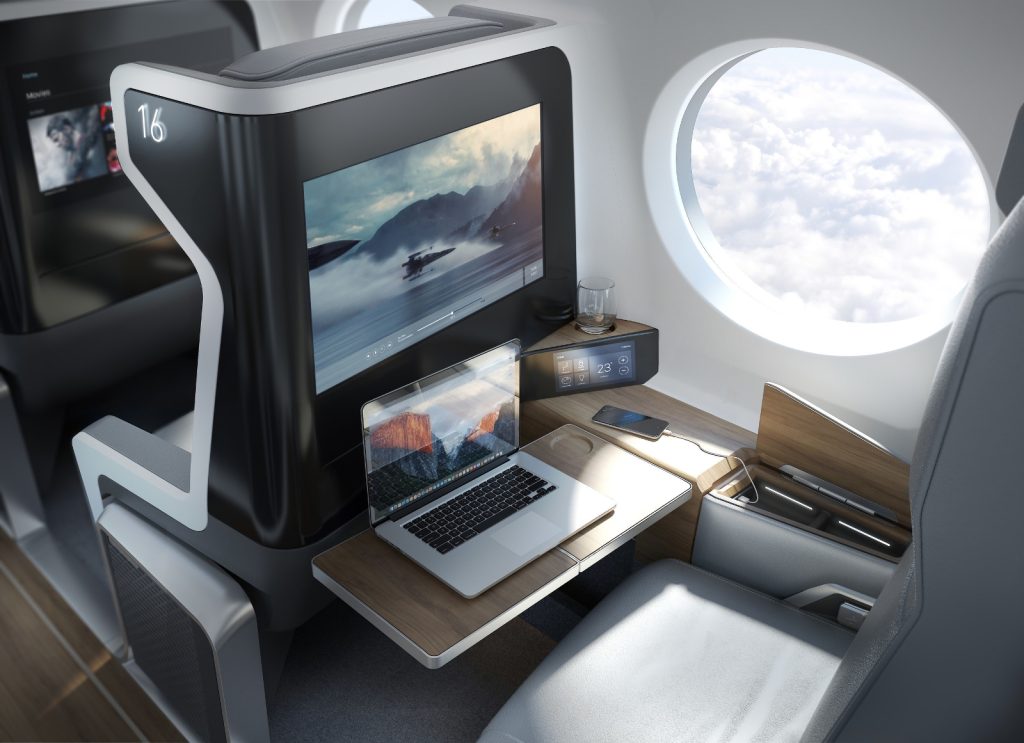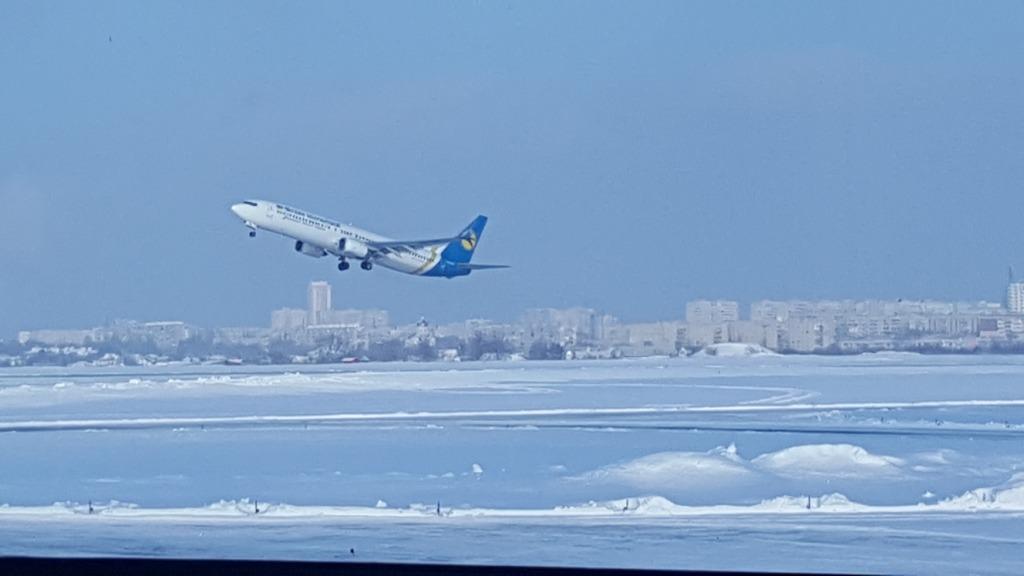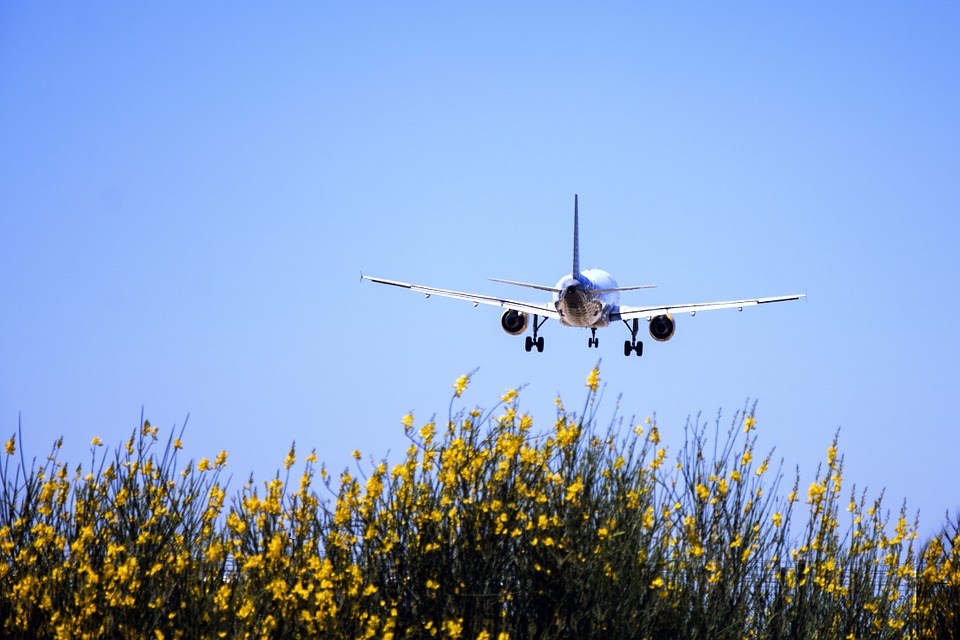Boom Technology today unveiled the XB-1 Supersonic Demonstrator, a subscale prototype of the Boom supersonic passenger airliner. On display for the first time ever at Boom’s Hangar 14 at Centennial Airport, the XB-1, nicknamed “Baby Boom,” will be unveiled this evening at an exclusive VIP event for airline and aerospace executives and media. The XB-1 is the world’s fastest civil aircraft ever made, and it will demonstrate in flight the key technologies for affordable supersonic travel.

“60 years after the dawn of the jet age, we’re still flying at 1960s speeds,” said Blake Scholl, chief executive officer and founder of Boom. “Concorde’s designers didn’t have the technology for affordable supersonic travel, but now we do. Today, we’re proud to unveil our first aircraft as we look forward to first flight late next year.”
First flight of the XB-1 is planned for late 2017. Subsonic flight test will be conducted east of Denver; supersonic test flights will be conducted near Edwards Air Force Base in Southern California, in partnership with Virgin Galactic’s The Spaceship Company. The XB-1 is a technically representative ⅓-scale version of the production Boom airliner.
“I have long been passionate about aerospace innovation and the development of high-speed commercial flights,” said Richard Branson, founder of Virgin Group. “As an innovator in the space, Virgin Galactic’s decision to work with Boom was an easy one. We’re excited to have an option on Boom’s first 10 airframes. Through Virgin Galactic’s manufacturing arm, The Spaceship Company, we will provide engineering and manufacturing services, along with flight test support and operations as part of our shared ambitions.”
“The Boom airliner will be a core part of the intercontinental airline fleet,” said Mike Boyd, Boyd Group International. “Travelers are hungry for faster flights and airlines will be excited for a differentiated and profitable option for their premium travelers.”

The XB-1 Supersonic Demonstrator will fly with hardware from General Electric (engines), Honeywell (avionics), Tencate (carbon fiber), with composite structures fabricated by Blue Force. Final assembly and vehicle integration are taking place in Boom’s facility at Centennial Airport.
“At Honeywell, we are inspired by Boom’s vision of affordable supersonic travel. Honeywell is working closely with Boom on products ranging from avionics to air data in support of Boom’s supersonic airliner and to fly on the the XB-1 demonstrator,” said Carl Esposito, Vice President of Marketing and Product Management at Honeywell Aerospace.
Boom’s Leading Design Team Making Supersonic Possible
Formerly of NASA, SpaceX and Boeing, Boom brought together the top minds in aviation to build its modern supersonic passenger airliner. Learning from the Concorde, they combined advanced aerodynamics, efficient engine technology and new composite materials to power a safe and affordable supersonic aircraft 2.6x faster than current jetliners.
The product of over 1,000 simulated wind tunnel tests, Boom’s tri-jet design features a refined delta wing, a gracefully tapered carbon fiber fuselage, and efficient turbofan jet engines. Unlike Concorde, the Boom design requires no afterburner, significantly improving fuel economy.
Notable Features
- First independently developed supersonic jet: Previously, supersonic flight has been the province of governments and militaries. The XB-1 is the first independently developed and privately-funded supersonic jet.
- Fastest Civil Aircraft Ever: Cruising at Mach 2.2 (1,451mph), Boom jets are 10% faster than Concorde and 2.6X faster than other airliners.
- State of the Art, Proven Technology: Leveraging 50 years’ progress in fundamental aerospace technologies, Boom uses proven tech (aerodynamics, materials, propulsion) to create a revolutionary new design. While the design is new, every key technology has already been proven safe and reliable on other commercial aircraft.
- Premium Passenger Experience: With one spacious seat on each side of the aisle, each passenger has a large window, a personal overhead bin, and direct aisle access. Cruising up to 60,000′, passengers experience a smoother ride with less turbulence.
- Safety First: The Boom design meets or exceeds industry and regulatory safety guidelines. Our aim is to create an aircraft that is safe, fast, and a pleasant to fly.
Design Specifications: XB-1 Supersonic Demonstrator
- Crew: Two (pilot + optional flight test engineer or passenger)
- Length: 68′, Wingspan: 17′
- Maximum Takeoff Weight: 13,500 lb
- Powerplant: 3X General Electric J85-21, non-afterburning; proprietary variable-geometry intake and exhaust
- Aerodynamics: Chine, refined delta wing with swept trailing edge
- Cruise: Mach 2.2 (1,451mph, 2,335 km/h)
- Nose Temperature: 307°F (345°F on ISA+20 day)
- Range: > 1,000nmi
Design Specifications: Boom Passenger Airliner
- Crew: Two
- Length: 170′, Wingspan: 60′
- Passengers: 45 standard (up to 55 in high density)
- Flight attendants: Up to 4
- Lavatories: 2
- Powerplane: 3X non-afterburning medium bypass turbofan; proprietary variable geometry intake and exhaust
- Aerodynamics: Chine, refined delta wing with swept trailing edge
- Long Range Cruise: Mach 2.2 (1,451mph, 2,335 km/h)
- Nose Temperature: 307°F (345°F on ISA+20 day)
- Maximum Design Route: 9,000nm (4,500nm unrefueled)




